The Tuesday Talks Series is scheduled throughout each semester with speakers invited to discuss cutting-edge topics. Occasionally talks are given on subjects relevant to students such as career management and research. CGU and Claremont Colleges Consortium faculty, students, staff, and alum are encouraged to attend.
Unless otherwise announced, all seminars are scheduled from 12:00 pm – 1:00 pm. The format for the talks this semester is hybrid, with the option to attend in person at Burkle 12 or online via Zoom. Please use the Zoom links below to register for that talk. For those attending in person, a light lunch will be provided!
Spring Semester 2025
02/04/2025

Michael J. Pomante II, Claremont Graduate University
“The Cost of Voting: How State Laws Shape Electoral Access and Participation”
Dr. Pomante’s presentation delves into the Cost of Voting Index (COVI) to examine how state election laws shape voter access and participation in the United States. By analyzing changes in legislation over time, it highlights disparities in voting accessibility across states and explores the impact of restrictive and inclusive policies. Particular attention is given to California’s significant progress in improving voting accessibility, illustrating how states can enact reforms to enhance voter participation. The presentation underscores the broader implications of these laws for democracy and emphasizes the importance of evidence-based reforms to promote an inclusive and equitable electoral system.
Host: Dept. of Politics & Government
02/11/2025
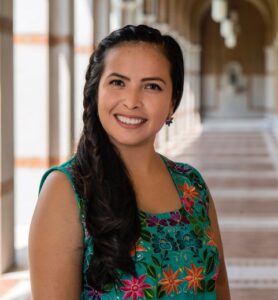
Michelle Torres, University of California, Los Angeles
“Beyond Prediction: Identifying Latent Treatments in Images”
Images are a rich and crucial element of political communication. The complexity of the information they convey creates challenges for the identification, interpretation, and explanation of the effects of visual messages on information processing and attitude formation. In this article, we adapt a methodological approach used in text analysis, the supervised Indian Buffet Process (sIBP) developed by Fong and Grimmer (F&G, 2016, 2021), to identify latent treatments in images and evaluate their impact on outcomes of interest. First, we use a convolutional neural network (CNN) to decompose images into substantively meaningful and interpretable tokens, visual words, to then form the input of the sIBP. Then, we follow the framework introduced by F&G and demonstrate the utility of this approach using two datasets: 1) a novel experiment measuring attitudes towards climate change in response to visual frames and 2) images of the Black Lives Matter (BLM) movement protests manually labeled by human coders according to the level of conflict they depict. We find significant differences between demographic and political groups in the way they perceive images, and also unmask latent treatments that confound the relationship between our treatment and outcomes of interest. Importantly, this paper extends the usage of computer vision tools in social sciences beyond prediction of image labels to uncovering, understanding, and visualizing the features of images that produce outcomes.
Host: Dept. of Politics & Government
02/18/2025

Jacek Kugler, Claremont Graduate University
“Generalized Power Transition”
Host: Dept. of Politics & Government
02/25/2025

Paul Zak, Claremont Graduate University
“Changing Attitudes and Behaviors for Difficult Issues”
It is generally difficult to change people’s views on strongly-held issues like race relations, political preferences, and support for economic freedom. But, it is not impossible. By measuring brain responses, this talk will show how high Immersion videos change attitudes and behaviors. These findings are confirmed by pharmaceutical interventions. I will also show you why President Trump was re-elected.
Host: Dept. of Economic Sciences
03/04/2025

Beatrice Magistro, California Institute of Technology
“Attitudes Toward Artificial Intelligence (AI) and Globalization: Common Microfoundations and Political Implications”
Advances in artificial intelligence (AI) are reshaping labor markets and sparking political debates. Like economic globalization, AI developments promise benefits, including job creation and lower prices, but also costs such as job displacement, raising crucial questions about public perception. Will AI, like globalization, challenge existing paradigms and trigger a backlash? Leveraging a conjoint experiment with 6,000 respondents from the US and Canada, we examine public opinion toward offshoring and generative AI, focusing on the multidimensional trade-offs between job and price changes. Across all scenarios, respondents are equally or more sensitive to price changes than employment shifts. AI is favored over offshoring, especially among Democrats, highlighting an emerging partisan divide in the US. Republicans and Canadians show more varied support, indicating AI is not immune to opposition. By focusing on the microfoundations of opinion formation, we identify scenarios that may trigger or temper protectionist stances.
Host: Dept. of Politics & Government
03/11/2025
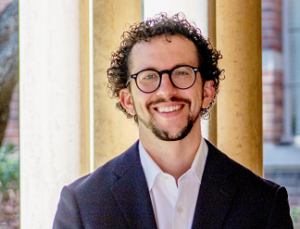
Zachary Steinert-Threlkeld, University of California, Los Angeles
“Batting the Beehive or Nipping the Bud? Deadly Repression \& Protest Cycle Intensity in African Societies”
Why do protesters react differently to deadly repression in different contexts? In this piece, we propose a new mechanism to elucidate the repression-dissent puzzle in the case of deadly repression: the protest cycle mechanism. The general intuition of this mechanism is that individuals react differently to deadly repression (by organizing more versus less protests), depending on the sequence of events that preceded the instance of deadly repression at time $t-n$ days. This mainly implies that events taking place at time $t-n$ days matter for the way individuals react to deadly repression at time $t$–such as, amongst others, the amount of deadly repression, how spread apart they are, the intensity already achieved by the protest cycle, the existence and intensity of previous protest cycles on the same issue, and deadliness of repression against them. This opportunity structure calculus is, we argue, compounded by the structures under which the violence takes place–the nature and conditions of the state and society where the violence takes place. To test this theory we introduce a novel, richer measure of protest cycle intensity in this paper, which we elaborate in relation to time-series cross-section data from the Armed Conflict Location \& Event Data Project (ACLED). We test our theory using data from 54 African societies between January 1st 2000 and December 31st 2022, from which we devise measures of protest cycles and protest issues.
Host: Dept. of Politics & Government
03/25/2025
Lincoln Land Fellows
Daniel Talamantes and Raam Ravi, Claremont Graduate University
Host: Dept. of Politics & Government
04/01/2025

Kyungkook Kang, Claremont Graduate University
“Arithmetic of World Politics: Evaluating Great Power Transitions, 1980–2029”
Debates surrounding power transitions among the U.S., China, and India reveal the complexities of international relations and highlight the need for reliable methods to measure national power. This talk examines the evolving metrics used to quantify national power, critically assessing their validity and effectiveness. It identifies the Composite Index of National Capability (CINC) as a flawed measure and argues that GDP adjusted for Absolute Political Capacity (APC) offers a more accurate reflection of global power dynamics since 1980. The analysis also projects significant shifts in global power over the next 25 years, with China closing the gap with the U.S. and India achieving rapid growth. Emphasizing the importance of robust, replicable power metrics, this study provides valuable insights into the implications of power transitions for global security and cooperation.
Host: Dept. of Politics & Government
04/08/2025

Ian Krajbich, University of California, Los Angeles
Host: Dept. of Economic Sciences
04/15/2025
Alma Bezares Calderon, Pitzer College
Host: Dept. of Politics & Government
04/22/2025

Patrick James, University of Southern California
“The Visual International Relations Project”
The Visual International Relations Project (VIRP), based on the systemist method, creates graphic representations of analytical arguments from academic publications. The systemist approach emphasizes theoretical completeness and logical consistency, which points toward the use of standardized visualizations to complement analysis conveyed in words. The VIRP archive contains over 1000 diagrams that summarize the contents of respective academic publications. The systemist graphic technique also can be used to depict the unfolding of events in real time. A diagram conveying the events of a major contemporary international conflict will be used to show the academic policy-related value of the systemist graphic approach in application.
Host: Dept. of Politics & Government
04/29/2025
Nicholas Brouwer, University of California, Merced
Host: Dept. of Politics & Government
Fall Semester 2024
09/10/2024(Canceled)

Ian Krajbich, University of California, Los Angeles
“Hesitation in the Marketplace”
A standard assumption in game theory is that decision makers have pre-planned strategies telling them what actions to take for every contingency. In contrast, non-strategic decisions often involve an on-the-spot comparison process, with longer response times (RT) for choices between more similarly appealing options. If strategic decisions also exhibit these patterns, then RT might betray private information and alter game theory predictions. Here, we examined bargaining behavior to determine whether RT reveals private information in strategic settings. Using pre-existing and experimental data from eBay, we show that both buyers and sellers take hours longer to accept bad offers and to reject good offers. We find nearly identical patterns in the two datasets, indicating a causal effect of offer size on RT. However, this relationship is half as strong for rejections as for acceptances, reducing the amount of useful private information revealed by the sellers. Counter to our predictions, buyers are discouraged by slow rejections – they are less likely to counteroffer with slow sellers. We also show that a drift diffusion model (DDM), traditionally limited to decisions on the order of seconds, can account for decisions on the order of hours, sometimes days. The DDM reveals that more experienced sellers are less cautious and more inclined to accept offers. In summary, strategic decisions are inconsistent with pre-planned strategies over actions. This underscores the need for game theory to incorporate RT as a strategic variable and broadens the applicability of the DDM to slow decisions.
Host: Dept. of Economic Sciences
09/17/2024

Luwei Ying, University of California, Los Angeles
“Military Power and Ideological Appeals of Religious Extremists”
The proliferation of terrorist propaganda threatens societies worldwide. Yet, we know little about violent extremists’ strategy in disseminating their ideologies. This paper studies the ideological appeals of jihadi groups, among the most prominent contemporary conflict movements, and shows how these groups navigate between religious and secular narratives in response to the fluctuations in their military power. Weaker groups must prioritize their core believers and foreground a more radical religious ideal, while stronger groups seek broader support from more moderate individuals and thus pitch themselves more secularly. I illustrate this dynamic with an original database of 87 magazines published regularly by 35 jihadi groups from 1984 to 2019. Further, I leverage approximately 6 million tweets from 21,000 ISIS-related accounts in 2015 to examine the jihadists’ mobilization efforts regarding different audiences. Overall, I demonstrate that violent groups put more emphasis on their ideological brand when they are militarily weaker.
Host: Dept. of Politics & Government
09/24/2024

Joshua Ferrer, University of California, Los Angeles
“To Elect or Appoint? Evidence from Local Election Administration”
Do elected or appointed officials produce better outcomes for their constituents? Elections should improve representation by providing a direct link to voters. However, some argue that citizens may have too little information to select good leaders and hold them accountable, especially at the local level. To assess these conflicting claims, he examines the performance of local election officials, an office which has come under immense strain to deliver democratic elections and for which selection method is a live policy debate. Using an exhaustive original collection of election administration structures in 1,116 counties across 13 states and over 62 years, he leverages changes in selection method over time to credibly measure differences in the election outcomes produced by local election officials based on whether they were elected or appointed.
Host: Dept. of Politics & Government
10/01/24

Adam Eckerd, Old Dominion University
“Policy Formulation for Wicked Problems: Mental Model Convergence and Policy Windows”
Complex problems are not easily amenable to simple policy solutions. However, the complexity itself is a human construct. For policy formulation purposes, the exact nature of the complexity is secondary to the human cognition of it. The policy problem of a complex issue is often not the natural complexity but is rather the human interpretation and understanding of the complexity. Individuals are likely to understand a problem through a unique combination of social influences, individual experiences and biases, and actual information. The complexity and wickedness of climate change relate to the social implications and human interpretations of those implications. If we view the issue of climate change as a human issue, it is fundamentally a symptom (or side effect) of modernity and any carbon-reduction solution would likely reorient modernity. The individual interpretation of climate change, then, is likely related to an individual’s perception of modernity. A critic of modernity may see anthropologic hubris facing a reconciliation. A technocrat may hold out hope on an engineering or technological solution. A modernist may be so confident in modernity’s ability to solve pressing problems that they see no cause for action or alarm.
Host: Dept. of Politics & Government
10/08/24
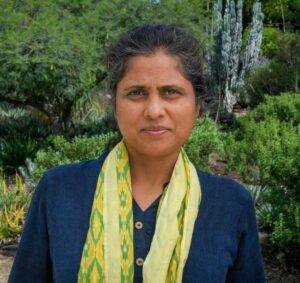
Deepti Goel, Pitzer College
“Teacher Quality in Delhi’s Higher Secondary Public Schools”
We measure teacher quality in terms of their effectiveness in raising student test scores in a high-stakes examination. Using a single cohort of grade 12 students from Delhi, we present the first ever value-added estimates of teacher quality from the public schooling system in India. We find that changing teacher assignment within schools has a modest impact on test scores: being assigned a one standard deviation better teacher from the same school would move a median student to the 56th percentile. We also find that specific personality traits of teachers are better predictors of their quality than are characteristics rewarded in the status quo, such as educational qualifications, training, and experience. Finally, we examine whether principals’ subjective ratings of teachers correlate with value-added estimates of teacher quality, and do not find any such correlation. Informed by our findings, and the existing literature on teacher evaluation, we recommend a new system for assessing teachers that is based on a multiplicity of methods, including value-added estimates and principal ratings.
Host: Dept. of Politics & Government
10/15/24

Jack Stecher, University of Alberta
“The Use of Disclosure Volume to Affect Shareholder Voting”
This talk investigates whether a sender of information can manipulate the outcome of a majority vote, even if all the information she promises is completely unbiased. We are in particular interested in the case in which information is costly for voters to process, even if the cost is arbitrarily small. To that end, we model a sender, thought of as a manager, whose goal is for a resolution to pass at an upcoming shareholders’ meeting. The sender has no private information, and makes only one decision: how many unbiased signals about the resolution’s likely outcome does she promise to have released. She cannot inspect the signals and screen them before their release, or otherwise manipulate what the voters can observe. Nevertheless, we show that her choice of disclosure volume can increase the probability that the voters pass the resolution. The reason is that in equilibrium, the voters cannot observe all the signals or coordinate on what they observe, but instead they must sample incompletely and independently. By choosing the number of available signals, the sender affects the voters’ optimal sample size and their inferences about what other voters must have observed in order to make their votes pivotal
Host: Dept. of Economic Sciences
10/22/24
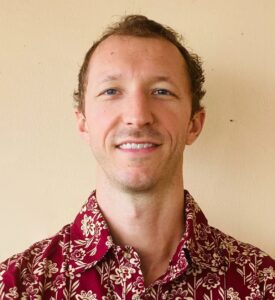
Kevin Grieco,University of California, Los Angeles
“Building Fiscal Capacity with Traditional Political Institutions: Experimental and Qualitative Evidence from Sierra Leone”
How can weak states build fiscal capacity? I argue that governments in weak states can build fiscal capacity by collaborating with non-state, traditional political institutions (TPIs). To study the impact of collaboration, I partnered with the local government in Kono District, Sierra Leone (the KDC), and embedded an experiment within their awareness campaign for a new rural property tax. Property owners in 118 villages were shown videos with varying content. Those in the treatment group viewed an additional segment where their paramount chief discussed the collaboration between the chiefdom government and the KDC in the tax effort. Priming collaboration significantly increased tax compliance and strengthened property owners’ belief in their obligation to pay taxes. To assess mechanisms, I developed additional video segments where paramount chiefs emphasized either their coercive capacity or their accountability to constituents. The experimental findings, reinforced by qualitative evidence from 300 interviews, demonstrate that both coercion and accountability are crucial sources of TPIs’ authority.
Host: Dept. of Politics & Government
10/29/24
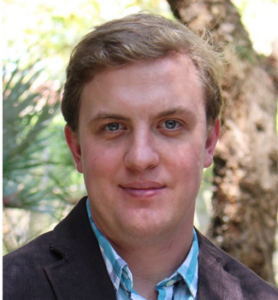
Stephen Goggoin, San Diego State University
“Building Fiscal Capacity with Traditional Political Institutions: Experimental and Qualitative Evidence from Sierra Leone”
The long literature on “ownership” of issues (and traits) by political parties has been plagued by measurement issues related to exactly how voters cognitively represent these associations. Specifically, do voters of all partisan backgrounds hold these associations? Do they make inferences about candidates because of their party label? Most explanations for ownership typically revolve around assessments of competency of the political parties, while revisionist accounts have noted the role of partisan priorities in shaping these associations. We add a third explanation: voters may simply share issue preferences with the party. Using a question-wording experiment with 40 salient issues in American politics in which respondents are asked to assess the competency of the parties, their preferences between the parties, and beliefs about which party prioritizes the issue, we help settle these competing explanations as the source of ownership. We find important differences across question-wording and issues, as well as strong effects of respondent partisanship and issue preferences, calling into question the validity and usefulness of typical ownership measures. These findings have important implications for candidate and party messaging as well as the interpretation of issue preferences in polls in today’s polarized environment.
Host: Dept. of Politics & Government
11/05/24
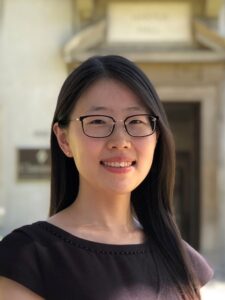
Yuzhu Zeng, La Sierra University
“Demographic Shifts and Eurasian Integration”
Our recent work has unveiled a paradigm shift in our understanding of global stability. Contrary to previous expectations and established narratives, a balance of power does not necessarily lead to stability. Instead, a preponderance of power among satisfied contenders emerges as the key to long-term regional and global stability. This Power Transition perspective, validated over time, raises concerns about the next half-century as several power transitions will set the preconditions for potential regional and global conflicts. Post World War II, the United States forged a formidable NATO coalition with European nations, ensuring peace. Today, China is mounting a challenge to the United States, vying for dominance. In the Asian context, India also looms as a potential threat to China, which could lead to a clash over unresolved regional issues. Simultaneously, the integration process within the EU stands as a beacon of hope, showing that nations can cooperate to build larger unified unions that secure their members. This integration process is being mirrored globally, and a dominant global or regional Union could emerge, potentially averting conflicts. This paper delves into the potential benefits of aggregating key global competitors, offering a beacon of hope for a more stable future.
Host: Dept. of Politics & Government
11/12/24


Melissa Rogers and Edward Headington, Claremont Graduate University
“Criminal Justice Encounters and Political Participation in Native Communities”
A robust line of scholarly research has shown that encounters with the criminal justice system make individuals less likely to participate in politics. Much of this research has focused on negative interactions between Black Americans and police. In this research, we examine the relationship between criminal justice encounters and political participation for Native Americans. Native Americans have very high rates of incarceration and frequent criminal justice encounters, suggesting that they might also see political participation dampened. Bad experiences with tribal police are also likely to reduce participation in tribal elections, but less than in non-tribal elections. We supplement these findings with descriptive evidence that many Native Americans, like many Black Americans, consider themselves targets of discriminatory policing. This talk will discuss the research process and the research context and provided preliminary results.
Host: Dept. of Politics & Government
11/19/24


Lincoln Land Fellows
Sasha Geschwind and Jessica Geiger
“Effectiveness of Municipal Collaboration for Watershed Management in the Southern Colorado River Basin”
As climate change increasingly puts pressure on water resources, it is more important than ever that they be managed effectively. This presentation covers research on municipal stormwater permits under the EPA NPDES MS4 Phase 1 system (Environmental Protection Agency, National Pollutant Discharge Elimination System, Municipal Separate Storm Sewer System) examining the effect of collaboration types amongst municipalities in order to reach their stormwater goals, as measured by their stormwater runoff and water samples across the southern Colorado River Basin from 2010-2020. This research uses common pool resource management theory and the themes of scale to identify the most effective approach for municipal management of watersheds.
“Building the Hell Out of This Place: An Environmental Justice Perspective on the IE’s Warehouse Boom”
In the 1980s, the Inland Empire (IE) was a rural agricultural area, with Ontario dominated by orange groves and dairy farms. As farms moved to cheaper land in the Central Valley, they left behind toxic waste for local communities to manage. City officials, like Ontario’s planning director Jerry Blum, saw the land as a “brownfield” ripe for development and welcomed warehouses, hoping for economic gains. However, these warehouses are unevenly distributed, with evidence suggesting they are often placed in communities of color. A 2021 study by Quan Yuan shows race, not income, predicts warehouse locations. Building on this, our research uses data from WarehouseCITY, the U.S. Census, and CalEnviroScreen 4.0 to analyze how historical demographics influence warehouse placement and assess associated health impacts.
12/03/24

Brian Palmer, University of Southern California
“Social Capital and Export Agriculture in Mexico: Evidence from a Survey Experiment”
When do commodity booms offer widespread economic opportunity? Over the past two decades, Mexican exports of high-value agricultural commodities such as avocados, berries, and agave have expanded rapidly. This project analyzes the conditions under which small-scale farmers are positioned to participate in these dynamic export markets. Using a survey experiment conducted in Mexico, I analyze the effect that social capital—formal and informal ties that farmers form with other members of their communities—has on economic adaptation from traditional to non-traditional commodities (i.e. from corn to berries). Ethnographic field research in berry-growing regions uncovers the mechanisms through which social capital aids in three stages of economic adaptation: innovation, resource deployment, and community governance.
Host: Dept. of Politics & Government
Spring Semester 2024
01/30/2024

Akhilesh Srivastava, La Sierra University
India is swiftly advancing towards its bold goal of evolving into a developed nation with a USD 30 trillion economy by its centennial year of independence, encapsulated in the Vision India@2047 plan. Spearheaded by Mr. Akhilesh Srivastava, the two-year initiative focuses on making India a global innovation and technology leader, with an emphasis on human development, social welfare, and environmental sustainability. The vision includes achieving a robust economy with a high per-capita income, supported by strong public finances and a financial sector, alongside developing top-notch infrastructure. It aims to reduce government interference, enhance digital governance, and foster global champions in various sectors, including becoming self-reliant in defense and space. Environmental goals include boosting renewable energy and reducing emissions, while also empowering youth through education and increasing employment opportunities. The plan also seeks to forge international R&D partnerships to establish leading labs and elevate Indian institutions to global acclaim.
Host: Dept of. Politics & Government
02/06/2024

Cesi Cruz, UCLA
“Campaigning Against Populism: Emotions and Information in Real Election Campaigns”
Across the world, populist politicians have been winning elections using new forms of campaigning to reach citizens directly, often using emotional rather than policy-based appeals. The challenge for mainstream parties has been how to articulate policy platforms and campaign promises in this new context. In particular, do forms of campaigning used by populist politicians — direct outreach and emotional messaging — work for programmatic politicians as well? We partner with a mainstream opposition political party in the Philippines to implement a field experiment during the 2019 Senate election to explore the effectiveness of: (i) direct appeals in the form of door-to-door visits providing information about their platform; (ii) the addition of positive emotional appeals in mediating this information. We show that direct engagement with voters to deliver policy messaging works in both forms, even when facing a popular populist incumbent. We also show that while the additional emotional messaging fosters increased engagement with the campaign in the short term, the policy information-only treatment was more relevant in driving vote choice. Last, we present evidence that the treatments operated through a persuasion channel, as treated voters were more likely to know the party, more certain about their knowledge, and gave higher ratings to the party’s quality and proposed policies.
Host: Dept of. Politics & Government
02/13/2024

Brian Yates, American University
“Evaluating Resources Used and Monetary as well as Nonmonetary Outcomes of Biopsychosocial Interventions: Toward Delivering the Best to the Most for the Least”
Insights that cost-inclusive evaluation (CIE) generates for evaluators and researchers are illustrated with 50 years of work in health and human services, including child, parent, and adolescent interventions, computer-based drug abuse treatment, consumer-operated mental health services, randomized clinical trials for suicide prevention, and emergency assistance programs for human rights defenders. CIE attempts to understand relationships between program costs and monetary as well as nonmonetary outcomes. CIE works best if conducted using multiple interest group perspectives to collect and analyze data from individual participants for competing interventions and counterfactuals. Common forms of economic evaluation, including cost-effectiveness and cost benefit analyses, can be most helpful if they go beyond quantifying cost-outcome relationships to understanding resource → activity, activity → process, and process → outcome relationships. Accessible graphic methods of portraying these relationships may encourage engagement of participants, providers, and community members in evaluation and research
Host: Division of Behavioral & Organizational Sciences/Politics & Government
02/20/2024
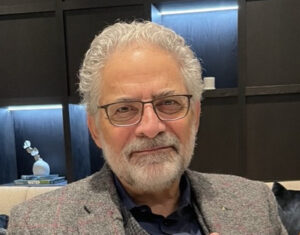
Birol Yesilada, Portland State University
“What Can Societal Values say about the Consolidation of Democracy?”
The relationship between economic development, cultural change, and political liberalization is often explored through classic modernization theory. Recent scholarship attempts to extend the classic approach to be more closely aligned with empirical reality. From the human development perspective, economic prosperity acts as a catalyst for cultural development, leading to social values that favor liberalization and thus promote effective democracy. However, recent works point out that fundamental differences exist in how materials and post-materials societies and their respective values along the traditional and secular dimensions affect the consolidation of democracy. In other words, how people practice religion remains a constant that plays a vital role in HD dynamics and democratic development and could explain, in part, why some societies fare better than others in the consolidation of their democracies.
Host: Dept. of Politics & Government
02/27/2024

Claire Adida, UCSD
“When hearts meet minds; Complementary effects of perspective-getting and information on refugee inclusion.“
Perspective-getting and correcting misconceptions are common interventions to promote inclusion toward outgroups. However, each strategy has limitations. Information corrections yield ambiguous effects, and empathy-based interventions may reproduce the biases they are meant to alleviate. We develop a theoretical framework that clarifies the strengths and weaknesses of each strategy, and offer a design to identify the conditions under which they are most effective. Using three studies on refugee inclusion with nearly 15,000 Americans over three years, we find that information and perspective-getting affect different outcomes. Perspective-getting affects warmth, policy preferences, and behavior, while information leads to factual updating only. We show that combining both interventions produces an additive effect on all outcomes, that neither strategy enhances the other, but that bundling the strategies may prevent backfire effects of information. Our results underscore the promise and limits of information and perspective-getting for promoting inclusion, highlighting the benefits of integrating the two strategies.
Host: Dept. of Politics & Government
03/05/2024

Pablo Argote, University of Southern California
“Education Under Authoritarian Rule: Evidence from the Chilean 1973 Coup”
Educational systems and curricula can serve as powerful tools for authoritarian governments to mold the political attitudes of young people. Does the legacy of education under authoritarian rule persist after the regime itself has ended? We exploit a discrete change in the school curriculum, generated by the Chilean 1973 coup that overthrew President Allende, and installed General Pinochet in power. After the coup, the junta radically changed the contents of the curriculum, forbidding any “leftist” content, among other measures. We use a regression discontinuity design that compares people who were barely exposed to this new curriculum to those whose education had ended before the reform. Our preliminary results indicate that being educated under the junta-controlled education system had a lasting impact; we find a negative effect on left self-identification and a null effect on both right-wing and centrist self-identification. In this sense, we corroborate that anti-Marxist indoctrination was somewhat successful, as we observe the effects spanning decades and transcending the dictatorship itself.
Host: Dept. of Politics & Government
03/19/2024

Heather Campbell, Claremont Graduate University
“Green Gentrification and Environmental Injustice: A Complexity Approach”
With segregation in housing markets a recurring problem in the US, communities populated predominantly by racial and ethnic minorities in the US have tended to be the locations for disproportionately more disamenities and disproportionately fewer amenities than other communities; this is the classic Environmental Justice, or EJ, problem. There is considerable evidence on disproportional exposure to environmental disamenities in these communities, with more recent evidence developing with regards to lesser access to environmental amenities such as green spaces. Provision of environmental amenities is often part of cities’ and communities’ efforts to renovate and revitalize polluted, segregated, and low-income neighborhoods. Yet the addition of amenities can cause changes to the neighborhood, including what is called “green gentrification” that may lead to displacement of those who most need the new amenities. Without understanding how neighborhoods change in the process of cleaning and greenspace development, it is difficult to tackle environmental injustice issues, for they may be aggravated by the distribution of amenities in urban areas. This presentation clarifies the separate concepts of gentrification and displacement, considers the city as a complex adaptive system, identifies crucial factors that are involved in neighborhood changes, provides research to gain insight onto the clusters of key factors that may lead to more desired or less desired neighborhood change, and makes policy recommendations around cleaning and greening.
Host: Dept. of Politics & Government
03/26/2024

Chad Kendall, USC Marshall
“Causal Narratives”
We study causal narratives – narratives which describe a (potentially incorrect) causal relationship between variables. In a series of experiments across a range of data-generating processes, we show that exogenously generated causal narratives manipulate decisions in ways inconsistent with rational theory. Instead, decisions are generally consistent with a behavioral theory, but with important exceptions, including when subjects face multiple narratives with contradictory recommendations. To study the generation and transmission of causal narratives, we show that they arise endogenously when subjects observe a dataset and provide advice to future subjects. These homegrown causal narratives mislead both the sender and receiver.
Host: Dept. of Economic Sciences
04/02/2024

Byengseon Bae, Claremont Graduate University
“Lincoln Land Fellowship Presentation”
“Linguistic Threat and Support for the Populist Right: The Case of Donald Trump”
Existing research suggests that local demographic change in the United States is a powerful antecedent of White attitudes and behavior. Yet recent studies of demographic shifts and White voting in contemporary elections yield inconclusive and conflicting results. What explains these conflicting findings? We hypothesize that the dominant measure of racial threat–growth of the local Hispanic population–is an increasingly insufficient proxy of racial threat as White Americans acclimate to demographic change of their neighborhoods and demographic change is increasingly driven by reproduction rather than immigration. The growth of the non-English speaking population instead, we argue, is now the primary driver of racial threat and support for the populist right. Using individual-level survey data from several large national surveys, we find a strong association between local growth of the non-English speaking population and White support for Donald Trump. These results hold when subjected to a variety of robustness checks and falsification tests. Our results suggest that the traditional conceptualizations of the link between demographic change, racial threat, and voting may no longer hold in contemporary politics.
Host: Dept. of Politics & Government
04/09/2024

Tye Rush, UCSD
“The Effect of Rapid Vote-By-Mail Transition on Communities of Color”
Does negative messaging reduce vote-by-mail (VBM) uptake? Throughout the 2020 election cycle, states expanded vote-by-mail (VBM) to adapt voting practices in response to the COVID-19 pandemic. This wave of vote-by-mail expansion was met in the mainstream with negative messaging that discredited mail ballots, going so far as to claim that these ballots lead to widespread fraud. Messages that emphasize negative or positive information can change people’s behavior to make them more risk averse, a phenomenon that scholars have dubbed as a “framing effect.” Researchers have demonstrated that framing effects can change public opinion, but few studies have studied how framing affects impact political participation. Even fewer studies assess how recent struggles with racially discriminatory elections practices can impact how effective frames can be. We examine the impact that salient VBM messages may have had on voters in the 2020 November election in a framing experiment that we conducted before the election. We tested the impact of two pro-VBM frames and one anti-VBM frame on people’s willingness to use VBM in the future. We leverage our oversample of Black and Latino voters in our analysis and find that a frame’s effectiveness varied based on racial/ethnic background. Only White people were less likely to use VBM after exposure to the negative VBM frame that questions the integrity of VBM, even after controlling for partisanship. Black, Latino, and White respondents were all more willing to use VBM after exposure to a frame ensuring the integrity of VBM and only Latino respondents were more willing to use VBM after exposure to a co-ethnic mobilizing frame. Our results suggest that how VBM is framed changes whether voters are comfortable casting their ballot by mail.
Host: Dept. of Politics & Government
04/16/2024


Kenzie De Keyser and Gesihan Zhang, Claremont Graduate University
“Lincoln Land Fellowship Presentation”
“Institutional Setups and Collective Township and Village Enterprises’ Long-term Sustainability in China”
The conventional political economy literature posits that public goods face issues due to market failures and unaddressed externalities, hindering economic efficiency, whereas private goods, through clear and protected property rights, promote economic growth. This view seems at odds with China’s experience, where economic reforms led to significant growth in collectively-owned rural enterprises (TVEs) despite initial constraints on private businesses. The rapid expansion of TVEs from 1978 to 1992 challenges the notion that only private ownership fosters long-term growth. Scholars like Kung and Lin suggest that while TVEs initially spurred economic development due to less political risk and received preferential treatment, their sustainability was compromised by increasing competition and principal-agent problems, eventually making room for the private sector. Yet, the work of Ostrom highlights that public goods can achieve economic efficiency and growth if managed by effective, self-governed institutions adhering to specific design principles. This perspective is explored in the context of China’s TVEs, suggesting that those implementing these principles were more likely to sustain their collective status, thus offering a nuanced understanding of how collective ownership can contribute to economic development under certain conditions.
Host: Dept. of Politics & Government
Zoom link
04/23/2024

Heonuk Ha, Univerity of Southern California
“Nationalization of Local Politics: The President’s Electoral Particularism in Mayoral Elections”
Amid the growing trend of political polarization and nationalization of US politics, the link between federal and local governments has become increasingly significant in the American public policy process. Consequently, the president, as party leader, has increasingly supported co-partisan candidates, not only in federal elections but also in subnational ones. Incorporating almost 2,000 local elections for 486 cities with populations exceeding 50,000 between 2005 and 2020, we investigate how the president strategically employs key federal grant funds to assist co-partisan mayoral candidates. Using Ordinary Least Squares (OLS) regression with two-way fixed effects, we find that the president distributes more key grant funds to swing cities during mayoral election years, and the corresponding (considerable) benefit is concentrated specifically on cities with co-partisan mayors during periods of unified federal government.
Host: Dept. of Politics & Government
04/30/2024

Gaspare Genna, University of Texas at El Paso
“Why do states regionally integrate and what are the benefits for this very deep level of cooperation?”
The presentation will review twenty plus years of scholarship by examining the political, economic, and psychological factors that help predict integration’s advancement in all regions around the world. The evidence strongly supports the need for regional asymmetric power with a convergence of preferences, values and institutions for integration to develop. The analysis includes both state level interactions and factors leading to domestic citizen support, with illustrations from European Union, the Americas, and West Africa.
Host: Dept. of Politics & Government
Zoom link
Fall Semester 2023
09/12/2023
Varun Karekurve Ramachandra, Stanford University
“Can Gender Quotas Improve Public Service Provision? Evidence from Indian Local Government”
What effect do gender quotas have on political responsiveness? We examine the effect of randomly imposed electoral quotas for women in Mumbai’s city council, using a wide variety of objective and subjective measures of constituency-level public service quality. Quotas are associated with differences in the distribution of legislator effort, with quota members focusing on public goods distribution, while non-quota members focus on individual goods, member perks, and identity issues. These differences in effort seem to influence institutional performance: perceived quality of local public goods is higher in constituencies with quota members, and citizen complaints are processed faster in areas with more quota members. We suggest that men’s more extensive engagement with extralegal and rhetorical forms of political action has led to men and women cultivating different styles of political representation.
Host: Dept of. Politics & Policy
09/19/2023
Raquel Centano, University of Southern California
“When Party and Race Align: Perceived Racial Discrimination’s Relationship with Affective Polarization”
What is the relationship between perceived racial discrimination and affective polarization? I argue that findings from extant research regarding race, partisanship, and racial discrimination suggest that perceived discrimination should also play a role in partisan affect. To evaluate the role of perceived racial discrimination in affective polarization, I use survey data from both an original nationally representative sample and 2012 – 2020 ANES data to determine how perceived racial discrimination correlates with partisan affect. I find mixed evidence that perceived discrimination on its own is associated with affective distance at the aggregate level. However, disaggregating the sample into Black, Latino, and white groups reveals the role of party messaging on race in conditioning perceived racial discrimination’s effects on partisan sentiment. These findings indicate that affective polarization is at its strongest when a voter perceives a conflict that intersects with both their partisan and racial group identities. These results suggest that researchers should consider the potential influences of race and racial politics in their study of affective polarization. Additionally worth considering is how party ideologies and messaging on race might interact with non-partisan group identities to produce more extreme partisan responses.
Host: Dept of. Politics & Policy
Zoom link
09/26/2023
Joshua Tasoff & Monica Capra & Jin Xu, Claremont Graduate University
“The Hedonic Opportunity Cost of Attention: Information-Consumption Substitutes and Complements”
Attention is a limited resource that can be used to enhance the experience of physical consumption, and it is a necessary input for processing information. This implies that consuming in the present creates an opportunity cost to processing information about the future, and vice versa. We test this in three experiments. We find that increasing consumption in the present decreases demand for information about the future and increases demand for future risk-mitigation. The results show that there are preference interactions between information and physical consumption, with evidence consistent with attention as the mediator.
Host: Dept. of Economic Sciences
10/03/2023
Jennifer Gaudette, University of California, San Diego
“Ideological Polarization in Police Union Politics”
There are over 800,000 police officers in the U.S., and approximately 80% are union members. Police unions are the institution through which police engage in political activity. In this paper, I employ multiple methods allowing me to estimate the effects of their most frequent political activity: endorsements. I combine a novel data set of police union endorsements in mayoral elections with a conjoint survey experiment testing the effects of police union endorsements against other local interest group endorsements. I find that responses to police union endorsements split along ideological lines: police union endorsements have significant negative effects on incumbent vote share in liberal cities and positive effects in conservative cities. Conjoint survey findings support these results while solving endogeneity concerns. Further, observational data suggests that the ideological responses to police union endorsements are a recent phenomenon, suggesting that national ideological polarization has significant effects at the local level.
Host: Dept of. Politics & Policy
10/17/2023
Steven Rogers, Saint Louis University
“Accountability in State Legislatures”
In theory, elections create incentives for state legislators to produce good policy, but is this the case? Accountability in State Legislatures answers this question and offers the most comprehensive analysis of state legislative elections, starting from candidates’ decisions to run for office to voters’ decisions at the ballot box. Over a third of state legislative incumbents do not face either a primary or general election challenger, and voters do not appreciably reward or punish state legislators in the general election for their representation, state-level policy outcomes, management of the economy, or general performance, even under favorable conditions for accountability. Accountability in State Legislatures raises serious questions regarding whether fundamental assumptions of democratic theory meaningfully apply to the “laboratories of democracy.”
Host: Dept of. Politics & Policy
10/10/2023
Tyler Reny, Claremont Graduate University
“The Immigration-to-Reproduction Shift: Latino Population Growth and White Support for Legal Abortion”
The literature on White Americans’ reaction to demographic change largely focuses on immigration policy at the expense of reproductive politics. We extend past research on White backlash against ethnic diversification to the domain of reproductive policy—testing the idea that prejudiced Whites will support abortion in response to growing minority populations as a means of slowing demographic change via non-White reproduction. Using a large sample of the American public, we find that Whites residing in locales with large growth in the non-White population are more supportive of legal abortion. Consistent with demographic trends, this relationship is driven by Latino population growth. Critically, this relationship is not observed among non-Whites, is confined to racially prejudiced Whites, and is most pronounced when Latino population growth coincides with growth in the local Latino youth population—suggesting that a burgeoning population of Latino children facilitates Whites’ connection of Latino growth to reproductive policy.
Host: Dept of. Politics & Policy
10/24/2023
Kyunkook Kang, Loma Linda University
“Averting Nuclear War”
This timely book offers a comprehensive examination of the current state of nuclear stability postures worldwide, effectively highlighting their inherent limitations. Through their analysis, the authors illustrate how the seemingly contradictory perspectives of deterrence optimists, disarmament idealists, and warfighting pessimists can be reconfigured into a unified approach towards achieving regional and global peace. They suggest that these strategies can be reconciled as complementary, rather than substitute approaches, to achieve the common goal of nuclear stability. To achieve this objective, the book employs a game-theoretical framework to analytically define the conditions for nuclear war. Drawing from extensive observations of significant crises, the model incorporates identifiable systemic regularities that influence the strategic decision-making process during severe crises and establish the prerequisites for different levels of nuclear confrontation.
Host: Dept. of Politics & Policy
10/31/2023
Kal Munis, Utah Valley University
“Which Details Matter for How Americans Evaluate Political Violence?”
What factors do Americans find most important when evaluating acts of political violence? We employ two pre-registered conjoint experiments to answer this question. Normatively, details regarding the violent act (e.g., the target and violence severity) should determine the punishment for political violence. However, Social Identity Theory suggests evaluations of political violence may depend on the perpetrator’s characteristics and the relationship between the social identities of perpetrators and evaluators. Through varying both perpetrator characteristics and features of the violent act, we discern the relative weight of act-centric and perpetrator-centric considerations. We find that even though the perpetrator’s characteristics (e.g., partisanship, race) do influence people’s excusal of violence, the features of the act matter much more for citizen evaluations of political violence, on average. Though these findings can be interpreted as normatively negative given that perpetrator’s identities do influence punishment, the disproportionate effect of the violent act’s target and severity are normatively encouraging.
Host: Dept of. Politics & Policy
11/07/2023
Yushim Kim, Arizona State University
“ChatGPT and Analytics”
ChatGPT, generative artificial intelligence based on large language models, has been of great interest since the end of 2022. Excitements and fears coexist about the use and implications of ChatGPT in various settings, including education. This talk consists of two parts. I would like to discuss where the level of ChatGPT is currently by sharing my experience with ChatGPT in a graduate classroom. I will then explain the underlying technical advancements of ChatGPT (e.g., natural language models, machine learning, deep learning, and generative artificial intelligence) and discuss decision-making aided by or copiloted with machine. The talk will be open to discuss the limitations and issues of the use of ChatGPT, especially in education settings.
Host: Dept of. Politics & Policy
11/14/2023
Adam Thal, Loyola Marymount University
“Race, Ideology, and the Politics of Higher Education”
Public universities have been referred to as “America’s best idea” and “a crowning achievement of our democracy.” Yet in recent years these institutions have come under attack, particularly in conservative states where policymakers have curtailed academic freedom and state funding at some of the nation’s best public universities. I explore some of the potential reasons why white conservative voters might support these attacks. I focus on the competing roles of ideology and race. An ideological explanation suggests that white conservatives support attacks on public universities because they are perceived as liberal institutions that benefit the Democratic party. By contrast, a racial explanation suggests this support is motivated not by a general concern about liberal ideology, but by a more specific concern about how these institutions are working to address racism. I test these competing explanations in two survey experiments, including one where participants make hypothetical decisions about what kinds of faculty to hire at their state’s elite public university. I find that white conservatives’ support for attacks on public universities is motivated more by concern over faculty teaching about race than it is by concern over faculty being “liberal” in general. Additional evidence suggests that white conservatives’ views are at odds with those of most Americans, who support faculty working to understand and address racism.
Host: Dept of. Politics & Policy
11/28/2023
Scott Cunningham, Baylor University
“ChatGPT in the Economist’s Toolkit:An Early Exploration — “Prediction””
Large language models have the promise to disrupt life through their ability to mimic intelligent speech. This mimicry is driven through its predictive capacity. But what is not known is whether that prediction capacity extends to the future. A unique feature of OpenAI’s ChatGPT 3.5 and 4 is that they were trained on data through September 2022 which allows us the ability to explore their predictive ability for benign to somewhat more complex economic events. We overcome some of the LLM’s built-in refusal to make outright predictions by having it, instead, reenact a scene in which certain events have already happened. Thus instead of predicting the future, ChatGPT believes it is the future and is recounting the past. The results are interesting. We find that it does extraordinarily well at predicting the winner of several Academy Award categories, but fails to predict the Best Picture. When asked to perform as Fed Chair Jerome Powell and restate the time path of inflation and unemployment under a variety of shocks (like Russia’s invasion of Ukraine), it performs somewhat less consistently. We suggest that this may be because LLMs are unable to incorporate endogenous policy responses by the Federal Reserve, and thus the LLM prediction may suffer from basic Lucas Critique problems.
Host: Dept. of Economic Sciences
12/05/2023
Allison Hartnett, University of Southern California
Host: Dept of. Politics & Policy
Zoom link
Spring Semester 2023
02/07/2023
Jacek Kugler, Claremont Graduate University
“Beyond Deterrence: Uncertain Stability in the Nuclear Era”
Profound contradictions within and across nuclear deterrence strategies evolved in response to the proliferation and modernization of nuclear weapons. The theoretical assumptions and implications for nuclear strategy derived from disarmament and warfighting inform this discussion. Grounded in conditional anarchy, we develop a decision-theoretic model of deterrence that explores nuclear stability. The Preconditions for conflict emerge when a dissatisfied nuclear nation is threatened with conventional loss, when conventional and nuclear parity is achieved, and if dissatisfied non-state actors acquire even minimal nuclear capabilities. To minimize the likelihood of nuclear war, we propose the creation of a nuclear security council composed of the global powers – the U.S. and China – that have every incentive to maintain global stability.
Host: Dept of. Politics & Government
02/14/2023
Saida Heshmati and Robert Klitgaard, Claremont Graduate University
“On Romance and Intimacy“
It has long been established that humans thrive on social connectedness across the lifespan and languish in its absence. Although felt love does not occur in the same context for everyone, people report a similar sensation corresponding to a surge of love: a rush of warmth accompanied by fascination and a desire to be close. This talk focuses on looking at the role of felt love in people’s daily lives and whether there is a shared belief on the everyday life experiences that make people feel loved.
How should we place romantic love and intimacy in a full human life? The jolt and surprise of romantic love, its physicality and yet its transporting otherworldliness, its radical unselfing, are signs and metaphors for meaning in life. Between extreme responses of the monk and the addict is what might be called a heroic take. Romantic love goes right when we gratefully allow it to manifest itself in our calling, our insight, and our sharing and service.
Host: Division of Behavioral & Organizational Sciences/Politics & Government
02/21/2023
Nicholas G. Napolio, University of Southern California
“Ideological Conflict and Delegation to the Executive Branch”
Scholars of the American separation of powers have long posited that ideological conflict between Congress and the Executive Branch decreases congressional grants of discretion to federal agencies. However, previous scholarship relies exclusively on a very blunt measure of ideological conflict: divided government. The presence of divided government can only vary every two years, and changes in divided government are correlated with myriad factors related to grants of discretion to the Executive Branch. We intervene in this literature by asking whether ideological divergence between individual members of Congress and the agencies responsible for implementing congressional bills influences how much discretion members of Congress afford to those agencies. Our design allows us to exploit variation in ideological conflict between the branches within years, holding constant many of the unobservable confounds troubling previous studies. Additionally, we ask whether the relationship between ideological divergence and discretion has changed over time with rising polarization.
Host: Dept. of International Studies
02/28/2023
Tine Paulsen, University of Southern California
“Mass Party Advantage under Party-Centered Local Governance”
Could the type of political institution used at the local level impact the balance of power in national politics? If so, how? This paper argues that mass parties are more successful in national-level elections when party-centered governance institutions, such as partisan elections, are used at the local level. Mass parties rely on members and branches as their main electoral strategy, which means that using local institutions that support this approach yields better electoral results, also in national elections. To test this hypothesis, I take advantage of a local governance reform in early 20th century Sweden that made the local institutions dependent on a population threshold. I find that municipalities that used elections and representatives for local governance had higher support for the Labor Party in national elections. This result demonstrates that local-level political institutions can significantly impact national-level politics with consequences for institutional reform outcomes and citizen welfare.
Host: Dept. of Politics & Government
03/07/2023 (Canceled)
Paul Zak, Claremont Graduate University
“Immersion: The Science of Extraordinary Experiences”
Why would anyone run a 20 year research program? What can one possibly learn from this? This interactive talk describes the the science of extraordinary experiences and what I have learned from measuring the activity of 50,000 brains in a wide variety of experiences as reported in my new book “Immersion”. Key take aways for how to create the extraordinary will be shared as well as why so much research is required to have confidence in findings. Lots of examples will be shown.
Host: Dept. of Economic Sciences
03/21/2023
Ben Feingold and Mirela Rezende, Claremont Graduate University
“Lincoln Land Fellowship Presentation”
“Identifying the Impacts of Land Use Regulation on Housing Development: Evaluating the Los Angeles Transit Oriented Communities Program Using a Geospatial Regression Discontinuity Design”
In this project, I examine the causal effects of local land use regulation—in particular allowable density of residential development—on key outcomes including housing development, transaction volume, and land values. The key problem researchers in this field face is the endogeneity of zoning and other land use regulations; if greater density is allowed in areas close to transit or other amenities that are already more attractive for development, then we cannot disentangle the impacts of those regulations from the effects of other factors that influence land value and development patterns. In order to address that problem, I exploit quasi-random variation in land use controls resulting from Los Angeles Transit Oriented Communities (TOC) Affordable Housing Incentive Program. Using a geospatial regression discontinuity (GRD) design, I the effects of these land use incentives on housing development and land values that serve as the basis for property tax assessments. I plan to use this analysis to conduct an evaluation of the TOC program, quantifying the potential fiscal and economic benefits to the city from land use reforms.
“The Urban Property Tax (IPTU: Imposto sobre a Propriedade Predial e Territorial Urbana) in Brazil: An Analysis of its Impact of Inequality and Redistribution in Brazil’s Municipalities”
The Brazilian social context is characterized by a state and social structure that causes inequalities. The purpose of this work is to analyze the fiscal and extra-fiscal aspects of the Brazilian property tax (IPTU). Considering previous studies have suggested that progressive taxes can promote redistribution, an idea which this study investigates in Brazil.
Host: Dept. of Politics & Government
03/28/2023
Tyler Reny, Claremont Graduate University
“Prominent public mass shootings cause surges in Americans’ engagement with gun policy”
A common explanation for the absence of stringent gun control laws in the United States is that incidents of acute gun violence, while generating strong emotional reactions, do not propel the American public into political action. Leveraging the as-good-as random timing of prominent public mass shootings within the past decade and a novel and immense array of large-scale proprietary and publicly available data, we demonstrate that these events consistently cause surges in a range of political actions—including information-seeking on Google, streaming public-facing documentaries on gun policy, social discussion of gun policy on Twitter, signing of gun policy petitions on Change.org, and donating to PACs related to the gun policy debate, but only for mass shootings that garner significant media attention. However, we also find evidence that in some cases (i.e. discussion and information acquisition) these violence-induced upswings in public engagement with gun policy are polarizing—with spikes in activity both oriented towards gun control and towards gun rights.
Host: Dept. of Politics & Government
04/04/2023
Roberto Ganau, University of Padova
“The luck of falling on the bright side. Enlightenment and the long-term persistence of the Habsburg administrative tradition”
The authors study the long-term, persistent effects of the Enlightenment-inspired administrative reform introduced by the Habsburg Monarchy in 1755 to analyze current administrative efficiency differentials in Northern Italy. They exploit exogeneity in the frontier established in 1748 by the Treaty of Aix-la-Chapelle between the Habsburg-ruled Duchy of Milan and the nearby territories ruled by the Savoy House. The Habsburgs extended to all land taxpayers—through the Convocato institute—the right of nominating local civil servants and deciding on taxation and public spending, while maintaining the external control through a state representative. By contrast, the municipalities ruled by the Savoy House were subject to a highly centralized system in which local civil servants were nominated by—and were under the control of—the Intendente, who was appointed directly by the King. Using spatial regression discontinuity and employing an original dataset combining current and historical municipality-level data, we find a persistent positive effect of the Habsburg reform on current administrative efficiency. Their evidence shows that Habsburg-ruled municipalities provide more public goods and services while spending as much as Savoy House-ruled ones. We interpret our results through a model of persistence of an administrative tradition driven by a within-institution ‘bureaucracy enculturation’ mechanism. They model the transmission over time of administrative values, norms and practices within an institution assuming no differences in cultural values within the underlying population. Finally, they show that Enlightenment values and principles played a fundamental role in shaping the ‘spirit’ of the bureaucracy of the Duchy of Milan.
Host: Dept. of International Studies
04/11/2023
Stephan Jagau, Univerity of California, Irvine
“To Catch a Stag: Payoff- and risk-dominance in a one-shot coordination experiment”
Five decades after Harsanyi and Selten’s seminal work on payoff- and risk-dominance in coordination problems, the influence of these drivers on real-life decisions is still poorly understood. One reason is that experiments often fail to separate risk and payoff-dominance from context-factors like learning, repetition, and complexity. Using a no-feedback, choice-list design and a recent decomposition of payoff matrices along orthogonal subspaces of “Nash” and “Pareto” incentives, this experiment is the first to cleanly identify what drives coordination decisions in one-shot settings. To uncover the mechanisms behind payoff- and risk-dominance, beliefs about others’ behavior are elicited next to decisions. The data shows that both payoff and risk-dominance independently and significantly impact decision-making, and that subjects’ subjective beliefs are a crucial mediator between incentives and decisions. Surprisingly, beliefs do not only drive the effect of risk dominance but also the effect of payoff dominance. This suggests that a notable share of subjects perceive coordination games as “team” problems.
Host: Dept. of Economic Sciences
04/18/2023
Joshua Tasoff, Claremont Graduate University
“Low-cost climate-change informational intervention reduces meat consumption among students for 3 years”
The available evidence on the influence of information campaigns on meat consumption habits is limited. In this study, we analyzed a dataset of over 100,000 meal choices spanning 3 years to investigate the lasting effects of an informational intervention aimed at increasing awareness of the link between meat consumption and climate change. Students who were randomly assigned to the intervention group decreased their meat consumption by 5.6 percentage points, and this reduction persisted over the 3-year period without any signs of reversal. Our calculations suggest that the intervention was cost-effective, with a high return on investment, even when using conservative assumptions (estimated at approximately -US$14 per metric ton CO2eq). These findings indicate that informational interventions can effectively promote more sustainable food choices and have a lasting impact.
Host: Dept. of Economic Sciences
04/25/2023
Carlos Algara, Claremont Graduate University
“Citizens Strategically Punish the Legislature for Policy Failures: The Impact of Income Inequality on Approval of National Institutions in the United States”
Do citizens hold institutions accountable for rising income inequality in society? In this paper, we test a theory arguing that citizens strategically distinguish between their national institutions when assessing which institution to blame for rising inequality by focusing their accountability on the institution primarily responsible for passing policy, the U.S. Congress. Leveraging over 50 years of new quarterly time-series data, we find that greater income inequality lowers approval of the U.S. Congress but not the presidency or the Supreme Court. We replicate this finding of strategic accountability at the subnational level using local inequality measures and MRP estimates of institutional approval at the congressional district and state levels. Lastly, using four unique modules fielded in the 2016-2019 Cooperative Election Study we find evidence for our proposed mechanism by showing that greater salience of an income inequality as a policy issue correlates with lower job approval for Congress but not the other two national institutions. Taken together, our results suggest citizens differentiate between their national institutions when assessing accountability for policy failures, with blame falling squarely with the Article One branch prominently responsible for policymaking.
Host: Dept. of Politics & Government
05/02/2023
Constança Esteves-Sorenson, Univerity of California, Los Angeles
“Do Monetary Incentives Undermine Performance on Intrinsically Enjoyable Tasks? A Field Test”
Economists have long been intrigued by an influential literature in psychology positing that monetary pay lowers performance on enjoyable tasks by crowding out agents’ intrinsic interest in them. But typical experiments in this literature do not report a full set of performance metrics, which might reveal conflicting evidence on crowding out. Further, they may suer from confounds. To evaluate these issues, we review over 100 prior tests and run a field experiment building on the canonical two-session test for crowding out wherein agents receive pay for an interesting activity in session one that is withdrawn unexpectedly in session two. We test whether pay harms performance using a comprehensive set of performance measures, and if so, whether unmet pay expectations might also contribute to this decline. Our results on output, productivity and quits are most consistent with a standard economics model than with a crowding out one. Additional, though more speculative, evidence suggests that unmet pay expectations may harm output quality.
Host: Dept. of Economic Sciences
Fall Semester 2022
9/13/2022
Stephen Marks, Pomona College
“Effects of Police Force Size and California Criminal Justice Reforms on Crime Rates”
Based on generalized method of moments estimation for dynamic panels, he finds almost all positive, and in some cases statistically significant permanent and/or transitory effects of the reforms on various categories of property crimes.
Host: Dept. of Economic Sciences
9/20/2022
Eric Schwitzgebel
“Does Studying Ethics Make People More Ethical?”
Host: Economic Sciences
9/27/2022
Syeda ShahBano Ijaz, University of California at San Diego
“Demanding the Last Mile: Foreign Aid and Political Participation in Pakistan”
Foreign aid is an external resource that should fill political and economic gaps in developing democracies; this is the underlying logic of millions of dollars committed to build democracy in the developing world. Yet, there is reason to believe that foreign aid can provide a cover for recipient country elites to engage in poor policies and outright corruption. However, a singular focus on elite incentives misses the full picture. Ms. Syeda ShahBano Ijaz presents a study that looks at how voters in recipient states
change their political behavior when they become aid recipients, as well as the
subsequent response of political elites to voter demands.
Host: Dept. of International Studies
10/4/2022
Heather Campbell, Claremont Graduate University
“Going Beyond Census-Measured Racial and Ethnic Minorities: Minority Faith and Environmental Justice”
Since the 1980s, significant research evidence has shown that racial and ethnic minorities in the US suffer disproportionately from environmental pollutants and environmentally undesirable facilities. Yet, the history of the US and the world shows that racial and ethnic minorities are not the only minority groups who are discriminated against. Dr. Heather Campbell presents a study that examines the effect of religious minority status (which is not measured in the US Census), and finds that at least two religious minority groups, Jews and Muslims, also suffer from environmental injustice.
Host: Dept. of Politics & Government
10/11/2022
Simon Tang, California State University
“Revisit Power Transition Theory and Relative War Cycle Theory, and their respective or combined application on the Sino-America relations”
Power Transition Theory emphasizes the danger of war between two major powers when power parity is achieved between them. In contrast, Relative War Cycle Theory emphasizes the concept of “critical points” in assessing the danger of a war between major powers. Dr. Simon Tang examines the possible combination of Power Transition Theory and Relative War Cycle Theory in analyzing and predicting the future of Sino-America relations.
10/18/2022
Ana Ortiz Salazar & Rena Salayeva, Claremont Graduate University
“Democracy, Economic Development, and Health Inequalities: Regime Type and Premature Mortality by Sex”
Premature mortality is important to politics because it reduces the number of years that individuals could have invested in political activities, determining who governments represent and to whom are they accountable. The standard deviation of the age-at-death distribution is a standardized measure of variation in premature mortality that captures differential access to healthcare and risk exposure in a society. Ana Ortiz Salazar and Dr. Rena Salayeva use life tables from the World Health Organization, 2000-2015, to generate the annual, sex-specific standard deviation of the age-at-death distribution across 162 countries. They apply dynamic panel data analysis to estimate the effect of regime type on sex-specific premature mortality, conditional on economic development.
Host: Dept. of International Studies
10/25/2022
Kirby Nielsen, California Institute of Technology
“Revealed Incomplete Preferences”
Dr. Kirby Nielsen presents a study that elicits incomplete preferences over monetary gambles with subjective uncertainty. Subjects rank gambles, and these rankings are used to estimate preferences; payments are based on estimated preferences. About 40% of subjects express incompleteness, but they do so infrequently. Incompleteness is similar for individuals with precise and imprecise beliefs, and in an environment with objective uncertainty, suggesting that it results from imprecise tastes more than imprecise beliefs. When subjects are forced to choose, Dr. Nielsen observes more inconsistencies and preference reversals. Evidence suggests there is incompleteness that is indirectly revealed—in up to 97% of subjects—in addition to what is directly measured. (The video is not available due to the technology difficulties)
Host: Dept. of Economic Sciences
11/1/2022
Hannah Alarian, University of Florida
“The “Right” Migrants: Explaining Immigrant Support for Far-Right Nativist Parties”
Far-right nativist parties in Europe are staunchly anti-immigrant, yet despite still receive considerable support from voters with immigration backgrounds. Dr. Alarian’s talk address this puzzle, arguing that FRN parties disaggregating immigration by origin— as opposed to general opposition— can provide immigrants the ability to view themselves as the `right’ immigrant. Together with co-author, James Fahey (University of Florida), Dr. Alarian finds evidence of their theory combining European Social Survey data with a novel dataset of hand-coded party manifestos across nine countries over eighteen years.
Host: Dept. of Politics & Government
11/8/2022
Cynthia Osborne, Vanderbilt University
“Effective State-Level Policies to Strengthen The Prenatal-To-3 Period”
The prenatal to age 3 period is the most sensitive and rapid period of development. Children who experience safe, nurturing, and loving environments are placed on trajectories toward optimal growth and learning, yet many families face substantial challenges during these years. Grounded in the science of the developing child and based on comprehensive reviews of the most rigorous evidence available, researchers from Vanderbilt University have identified 11 policy solutions proven to improve the health and well-being of children and families. Based on findings from their recently released 2022 Prenatal-to-3 State Policy Roadmap, Dr. Cynthia Osborne will present a deep understanding of what state investments work, for whom, under what conditions, and which states are leading the way.
Host: Dept. of Politics & Government
11/15/2022
Rainita Narender, Claremont Graduate University
“Evaluating Post-Incarceration Rehabilitation Services in California”
Reducing California’s staggering recidivism rates has persisted as the most prioritized yet challenging goal faced by the California Criminal Justice System (CCJS). As two-thirds of individuals released from prison re-offend within two years of release, finding feasible solutions to deter re-offense is of great importance. A recent program geared to mitigate rising recidivism rates in California is the Specialized Treatment for Optimal Programming, STOP, program offered by the California Department of Corrections and Rehabilitation, CDCR. This program offers housing, counseling and vocational resources to individuals considered the highest risk to re-offend based on their offense history, socioeconomic status, psychological and physiological safety. Rainita Narender presents a study that applies a transdisciplinary approach to investigate the populations that take-up STOP programming and if this access aids in re-entry within the community.
Host: Dept. of Economic Sciences
11/29/2022
Veronica Zebadúa-Yáñez, University of Maryland
“‘I’m the one that’ll make you pay’: Towards a Theorization of Feminist Violence”
Feminist scholars and activists presuppose that violence and feminism stand in opposition. Arendtian perspectives, for example, take violence as an anti-political, instrumental practice that destroys the contingent character of plural action. Pacifists regard the use of violence as an expression of the hetero-patriarchal-racist-colonial imaginary. Vulnerability-centered perspectives, for their part, propose that violence is an expression of sovereign desire. Dr. Veronica Zebadúa-Yáñez presents a study that shifts the attention from the grim realities of sexist violence to thinking feminist uses of violence. Dr. Zebadúa-Yáñez engages historical and contemporary narrative fragments and episodes of feminist violence—violence perpetrated by self-identified feminist militants—and shows that the use of feminist violence is an overlooked element within the repertoires of feminist contentious politics.
Host: Dept. of Politics & Government
12/6/2022
Joshua Tasoff, Claremont Graduate University
“Beliefs that Entertain”
A large fraction of people’s time is spent in leisure but fairly little economic research has been devoted to this study. Dr. Joshua Tasoff presents a study that analyzes the role of beliefs on player engagement in a popular video game called “League of Legends”. Using a data set of nearly 2.8 million matches representing 28 million players subsequent game engagements, Dr. Tasoff estimates the effect of lagging behind the opponent, suspense and surprise, and a proxy for flow. The approach of this study can be used to inform game design.
Host: Dept. of Economic Sciences
Spring Semester 2022
1/25/22
Tony LoSasso, DePaul University
“Incumbent Regulation and Adverse Selection: You Can Keep Your Health Plan, But at What Cost?”
Host: Dept. of Economic Sciences
2/8/22
Svetlana Pevnitskaya, Florida State University
“Information Aggregation in Social Networks”
Host: Dept. of Economic Sciences
2/15/22
Maxim Massenkoff, Naval Postgraduate School
“Beyond Crime Rates: How Did Public Safety in U.S. Cities Change in 2020?”
Host: Dept. of Economic Sciences
2/22/22
Ayobami Laniyonu, University of Toronto
“Racial Misclassification in Police Records and Its Effects on Estimates of Racial Disparities”
Host: Dept. of Politics & Government
3/1/22
Allison Hartnett, University of Southern California
“Rural Intra-Elite Conflict, Colonization, and Demands for Power-Sharing: Evidence from Khedival Egypt”
Host: Dept. of International Studies
3/8/22
Yesola Kweon, Utah State University
“Age and Trade Policy Preferences in an Aging Society: Evidence from Japan”
Host: Dept. of International Studies
3/22/22
Sara Sadhwani, Pomona College
“Asian American Political Representation: Candidates, Voters, and the Future of AAPI Representation”
Host: Dept. of Politics & Government
3/29/22
Sarah Dreier, University of New Mexico
“Veneer of Liberal Law: How Britain Justified Internment without Trial in Northern Ireland”
Host: Dept. of International Studies
4/8/22
Mark Blitz, Claremont McKenna College
“Reason and Politics”
Host: Dept. of Politics & Government
4/19/22
John Garcia, University of Michigan
“Yes, I Marked ‘Some Other Race’. So, What Does that Mean about Race and Latinos?”
Host: Dept. of Politics & Government
4/26/22
Magnus Lofstrom, Public Policy Institute of California
“Does Racial Disparity in Policy Stops Vary Throughout the Day?”
Host: Dept. of Economic Sciences
5/3/22
Tyler Reny, Claremont Graduate University
“How Vulnerability Shapes Climate Policy Attitudes: The Case of Rising Sea Levels”
Host: Dept. of Politics & Government
Fall Semester 2021
9/7/21
Tyler Reny, Claremont Graduate University
“Race, Prejudice, and Support for Racial Justice Countermovements: The Case of ‘Blue Lives Matter'”
Host: Politics & Government
10/5/2021
Joe Benitez, University of Kentucky
“The Effect of Medicaid Eligibility and Payment Generosity on Recession-Linked Declines in Access to Health Care”
Host: Economic Sciences
10/19/21
Andrew McCall, University of Chicago
“Police Expertise, Political Control, and Racial Bias in Discretionary Arrests”
Host: Politics & Government
10/26/21
Carlos Algara, Claremont Graduate University
“Dynamics of Partisan Competition for Legislative Majorities in the U.S. House & Senate, 1959-2018”
Host: Politics & Government
11/2/21
Kate Bundorf, Duke University
“How do Humans Interact with Algorithms? Experimental Evidence from Health Insurance”
Host: Economic Sciences
11/9/21
Jean Schroedel, Claremont Graduate University
“Structural Racism, the USPS and Voting by Mial On-and Off-Reservation in Arizona”
Host: Politics & Government
11/16/21 – Cancelled (rescheduled for 2/22/22)
Ayobami Laniyonu, University of Toronto
“Racial Misclassification in Police Records and Its Effect on Estimates of Racial Disparities”
Host: Politics & Government
11/23/21
Soha Hammam, Claremont Graduate University
“A Multi-Method Analysis of Civil Resistance Dynamics and Outcomes”
Host: International Studies
11/30/21
Amanda Ross, University of Alabama
“A Second Stand at the Schoolhouse Doors: Are Public Schools Resegregating?”
Host: Economic Sciences
12/7/21
Rudy Alamillo, Western Washington University
“The Not So Beautiful Game: FIFA Sanctions and Homophobic Backlash in Mexico”
Host: Politics & Government
Spring Semester 2021
1/26/21
Melissa Rogers and Yuzhu Zeng, Claremont Graduate University
“Federalism and Inequality in a Pandemic: Evidence from Location Tracking in Mexico”
Host: International Studies
2/2/21
Cristina Garcia, CA Assemblymember, 58th Assembly District
“Pursuing Environmental Justice”
Host: Politics & Government
2/9/21
James Ziliak, University of Kentucky
“Recent Trends in the Material Well Being of the Working Class in America”
Host: Economic Sciences
2/23/21 – CANCELLED
Jevay Grooms, Howard University
“Racial and Ethnic Disparities: Essential Workers, Mental Health, and the Coronavirus Pandemic”
Host: Economic Sciences
3/2/21
Heather Campbell, Sekwen Kim, Shawnika Johnson, and Claudia Cáceres, Claremont Graduate University
“Illuminating Geographic Racism: The COVID-19 Shutdown and Environmental Justice”
Host: Politics & Government
3/9/21
Benjamin Newman, University of California, Riverside
“The Color of Disparity: Racialized Income Inequality and Support for Liberal Economic Policies”
Host: International Studies
3/23/21
Christopher (Kitt) Carpenter, Vanderbilt University
“Effects of Indoor Tanning Regulations”
Host: Economic Sciences
3/30/21
Jessica Saunders, Council of State Governments, Justice Center
“Implicit Bias in Discretionary Decisions”
Host: Economic Sciences
4/6/21
Trevon Logan, Ohio State University
“Competition and Discrimination in Public Accommodations: Evidence from the Green Books”
Host: Economic Sciences
4/20/21
Sara Heller, University of Michigan
“Predicting and Preventing Gun Violence”
(Please note this talk was not recorded at the request of the speaker)
Host: Economic Sciences
4/27/21 – CANCELLED (To be rescheduled)
Mark Abdollahian and Zining Yang, Claremont Graduate University
“The Convergence of Technology, Markets and Politics”
Host: International Studies
5/4/21
Steven Raphael, University of California, Berkeley
“Can Restorative Justice Conferencing Reduce Recidivism?
Host: Economic Sciences
Fall Semester 2020
9/22/20
Dong Wook Lee, Adelphi College
“The Modifiable Areal Unit Problem in Political Science”
Host: International Studies
9/29/20
Yi Feng, Claremont Graduate University
“Will Money Contribute to a Good Image? An Empirical Study of China-European Economic Relations and China’s National Image in Europe”
Host: International Studies
10/6/20
Thomas Rice, University of California, Los Angeles
“Health Insurance in Other Wealthy Countries: What Can the U.S. Learn?”
Host: Politics & Government
10/13/20
Jehan Sparks, University of California, Los Angeles
“Gian/Loss Asymmetries in Sequential Framing Effects”
Host: Economic Sciences
10/20/20
Jennifer Merolla, University of California, Riverside
“Emotions and Engagement in the Year of the Woman”
Host: Politics & Government
10/27/20
Michael Melvin, University of California, San Diego
“The Coming Crisis of Lower-than-expected Retirement Incomes”
Host: Economic Sciences
11/3/20 – POSTPONED (Moved to Spring 2021)
James Ziliak, University of Kentucky
“COVID-19 and The US Safety Net”
Host: Economic Sciences
11/10/20
Richie Li, Baylor University
“The Hidden Story in White Identity Politics: a More Comprehensive Understanding of How Does White Racial Consciousness Shape Anti-Muslim Opinion”
Host: Politics & Government
11/17/20
Marcia Godwin, University of La Verne
“Southern California’s Flipped Congressional Districts”
Host: Politics & Government
11/24/20
Tanu Kumar, College of William & Mary
“Home Price Subsidies Increase Local Participation in Urban India”
Host: International Studies
12/1/20
Laura Peck, Abt Associates
“Experimental Evaluation Design for Program Improvement”
Host: Politics & Government
Spring Semester 2020
1/28/20
Shawn Rohlin, Kent State University
“Weathering an Unexpected Financial Shock: The Role of Cash Grants on Household Finance and Business Survival following a Natural Disaster”
Host: Economic Sciences
2/4/20
Erin Duffy, University of Southern California
“Surprise Medical Bills: When The Hospital Is In Your Insurance Network, But — Surprise! — The Doctor Is Not”
Host: Politics & Government
2/11/20
Guillermo Ramos Douglass-Jaimes, Pomona College
“Blurring Boundaries of the “Slum Divide” Through Precision Mapping in Rio de Janeiro”
Host: Politics & Government
2/18/20
Char Miller, Pomona College
“Streetscape Environmentalism: Flood Control, Social Justice, and Political Power in San Antonio”
Host: Politics & Government
2/25/20
Christopher Krewson, Claremont Graduate University
“Supreme Court Legitimacy and the Gender Gap”
Host: Politics & Government
3/3/20
Cynthia Osborne, The University of Texas at Austin
“Effective State-level Policies to Strengthen the Prenatal-to-3 Period”
Host: Politics & Government
3/10/20
Mireille Jacobson, University of Southern California
“How Do Prescription Drug Monitoring Programs Reduce Opioid Prescribing?”
Host: Economic Sciences
Following the decision of the university to move all classes online, the Division of Politics and Economics has also decided to suspend all in-person gatherings for research talks and events for the rest of the semester. Unfortunately, the remaining Spring 2020 DPE Tuesday Talks must be cancelled.
3/24/20 – CANCELLED
Jennifer Merolla, University of California, Riverside
Title: “Emotional Engagement in the Year of the Woman”
Host: Politics & Government
3/31/20 – CANCELLED
Marcia Godwin, University of La Verne
“Southern California’s Flipped Congressional Districts”
Host: Politics & Government
4/7/20 – CANCELLED
Thomas Rice, University of California, Los Angeles
“Health Insurance in Other Wealthy Countries: What Can the U.S. Learn?”
Host: Politics & Government
4/14/20 – CANCELLED
Michael Melvin, University of California, San Diego
“Global Currency Markets: Facts and Fallacies”
Host: Economic Sciences
4/21/20 – CANCELLED
Paasha Mahdavi, University of California, Santa Barbara
“Direct Cash Transfers and Political Participation”
Host: International Studies
4/28/20 – CANCELLED
Laura Peck, Abt Associates
“Experimental Evaluation Design for Program Improvement”
Host: Politics & Government
5/5/20 – CANCELLED
Gregory Daneke, Arizona State University
“Automacene Rising: The Problematic Political Economy of Artificial Intelligence”
Host: Politics & Government
Fall Semester 2019
9/17/19
Heather Royer, University of California, Santa Barbara
“How are Preferences for Commitment Revealed?”
Host: Economic Sciences
9/24/19
Gregoire Phillips, University of California, San Diego
“Velvet Gloves on Iron Fists: Media, Influence, and Power in Modern Extremism”
Host: International Studies
10/1/19
Douglas Lemke, Pennsylvania State University
“The Survival of ‘States’”
Host: International Studies
10/8/19
Peiran Jiao, Maastricht University
“Investor Memory”
Host: Economic Sciences
10/15/19
Mehdi Nemati, University of California, Riverside
“Heterogeneous Effects of High-Frequency Consumption Analytics on Residential Water Consumption”
Host: Politics & Government
10/22/19
Joshua Tasoff, Claremont Graduate University
“Eating to Save The Planet: Evidence from a Randomized Controlled Trial Using Individual-Level Food Purchase Data”
Host: Economic Sciences
10/29/19
Ines Levin, University of California, Irvine
“Machine Unlearning: Adjusting Automatically for Human Biases in Decision Making”
Host: International Studies
11/5/19
Erica Dobbs, Pomona College
“Cinderella States: Rethinking immigration typologies in Western Europe (and beyond)”
Host: Politics & Government
11/12/19
Robert Klitgaard, Claremont Graduate University
“Culture and Development”
Host: Politics & Government
11/19/19
Rachel VanSickle-Ward, Pitzer College
“The Politics of the Pill: Gender, Framing, and Policymaking in the Battle over Birth Control”
Host: Politics & Government
11/26/19
Rustam Romaniuc, Claremont Graduate University
“Whistleblowing Norms: Experimental Evidence from Moldova and France”
Host: Economic Sciences
12/3/19
Malte Dold, Pomona College
“F.A. Hayek on the Political Economy of Endogenous Preferences”
Host: Economic Sciences
12/10/19
Zoe Nemerever, University of California, San Diego
“The Rural Representation Gap”
Host: International Studies
Spring Semester 2019
01/29/19
Nico Ravanilla, University of California, San Diego
“Limiting Adverse Political Selection: Experimental Evidence from the Philippines”
Host: International Studies
02/05/19
Richard Kronick, University of California, San Diego
“Is ‘Medicare for All’ the Democrats’ “Repeal and Replace’?”
Host: Economic Sciences
02/12/19
Gregory De Angelo, Claremont Graduate University
“Policing For Profit: The Political Economy of Law Enforcement”
Host: Economic Sciences
02/19/19
Jeanine Kraybill, California State University, Bakersfield
“The Women of SCOTUS: A Preliminary Analysis of the Different Voice Debate”
Host: International Studies
02/26/19
Lise Vesterlund, University of Pittsburgh
“Breaking the Glass Ceiling: Gender Differences in Task Allocations”
Host: Economic Sciences
03/05/19
Bhavna Shamasunder, Occidental College
“Crude Justice: Neighborhood Oil Development and Community Based Research in Los Angeles”
Host: Politics & Government
03/12/19
Michael McLendon, California State University, Los Angeles
“The Psychology of Inequality: Rousseau’s ‘Amour-Propre'”
Host: Politics & Government
03/19/19
Spring Break
03/26/19
David Andrews, Scripps College
“Brexit and the British Constitutional Crisis”
Host: Economic Sciences
04/02/19
Philip Armour, RAND Corporation
“Stuck without a Job: How Housing Policies, Labor Markets, and Declining Mobility Contribute to Long-Term Disability”
Host: Economic Sciences
04/09/19
Arturo Vargas Bustamante, University of California, Los Angeles
“US-Mexico Cross-Border Health Visitors: How Mexican border cities in the state of Baja California address unmet healthcare needs from US residents”
Host: Economic Sciences
04/16/19
Evan Crawford, University of San Diego
“The partisan competition over partisan competition: electoral contestation at the local level”
Host: Politics & Government
04/23/19
Chris Whaley, RAND Corporation and University of California, Berkeley
“The Effect of Financial Reward Programs on Prices and Utilization of Low-Priced Providers”
Host: Economic Sciences
04/30/19
Ruoxi Li, U.S. California State University, San Marcos
“Is there a trade-off between campaigning and legislating in Congress?”
Host: Politics & Government
Fall Semester 2018
09/11/18
Michael Baranick, American University of Central Asia
“Causes and Process of Radicalization”
Host: International Studies
09/18/18
Aaron Berg and Javier Rodríguez, Claremont Graduate University
“Trust and Turnout in Indian Country”
Host: Politics & Government
09/25/18
Claire O’Hanlon, RAND Corporation
“U.S. Health Care Industry Consolidation: National Landscape and Results from A Case Study OF Pittsburgh, Pennsylvania”
Host: Economic Sciences
10/02/18
Melissa Rogers and Jean Schroedel, Claremont Graduate University
“Assessing the Efficacy of Early, On-site Voting Access on Indian Reservations: Evidence from a Natural Experiment in Nevada”
Host: Politics & Government
10/09/18
Christopher Krewson, Claremont Graduate University
“Public Support for Judicial Philosophies”
Host: Politics & Government
10/16/18
Heather Campbell, Claremont Graduate University
“Environmental Justice and Water Policy during a Drought: Community Stressors, Minority Residents, and Cutback Assignments”
Host: Politics & Government
10/23/18
Arie Kapteyn, University of Southern California
“U.S. Life Satisfaction Within and Across Countries: The Role of Societal Capital and Relative Income”
Host: Economic Sciences
10/30/18
Stan Oklobdzija, University of California, San Diego
“Citizens United, Dark Money Networks and the Evolution of Political Parties”
Host: Politics & Government
11/06/18
Giorgi Areshidze, Claremont McKenna College
“How the West Thinks about Radical Islam”
Host: Politics & Government
11/13/18
Robert Bunker and Marisa Mendoza, University of Southern California
“MARA SALVATRUCHA (MS-13) A Law Enforcement Primer”
Host: Politics & Government
11/20/18
Yi Feng, Zhijun Gao and Wanjun Jiang, Claremont Graduate University
“Logic of Foreign Direct Investment, Convergence or Divergence? A Comparative Study of US and China’s Outgoing FDI to Africa”
Host: International Studies
11/27/18
David Neumark, University of California, Irvine
“The Long-Run Effects of the Earned Income Tax Credit on Women’s Earnings”
Host: Economic Sciences
12/4/18
Jacek Kugler, Claremont Graduate University
“Impact of Political Capacity on Demographic Change and Economic Recovery”
Host: International Studies
12/11/18
Leif Rosenberger, U.S. Army War College
“Try Shared Prosperity to Reduce the Demand for Violence”
Host: International Studies
Spring Semester 2018
01/23/18
Jacek Kugler, Claremont Graduate University
“Long term Power Transtion Perspective.”
Host: International Studies
01/30/18
Tamorah Hunt, Claremont Graduate University Board Member
“Issues in Forensic Economics.”
Host: Development Office
02/06/18
Brian Hilton, Claremont Graduate University
“Locational Big Data and Analytics: Case Studies and Demonstrations.”
Host: Politics & Government
02/13/18
Steven Childs, California State University, San Bernardino
“Unmanned Drones, Small Nuclear Powers, and Nuclear Deterrence.”
Host: International Studies
02/20/18
Linda Perkins, Claremont Graduate University
“The United Nations Substantiable Development Goals and their impact on Global Gender Equity.”
Host: International Studies
02/27/18
Paul Peretz, Claremont Graduate University
“A Dynamic Equilibrium Model of Political Parties.”
Host: Economic Sciences
03/06/18
Georgia Kernell, University of California, Los Angeles
“Inside Parties.”
Host: International Studies
03/20/18
Birol A. Yeşilada, Portland State University
“How Social Values Could Explain Regional Integration in Europe.”
Host: International Studies
04/03/18
Mark Abdollahian, Claremont Graduate University
“Big Data Trajectories.”
Host: International Studies
04/10/18
Tony LoSasso, University of Illinois at Chicago
“Reclassification Risk in the Small Group Health Insurance Market.”
Host: Economic Sciences
04/17/18
Sallama Shaker, Claremont Graduate University
“Chess Game in the Middle East.”
Host: International Studies
04/26/18
James M. Murphy, Jr. & Robert E. Hindle
“Multilateralism and Economic Development.”
Host: Development Office & Economic Sciences
05/01/18
Kerstin Fisk, Loyola Merimount University
“Refugee Encampment and Communal Conflict in sub-Saharan Africa.”
Host: International Studies
Fall Semester 2017
09/05/17
Lucrecia Santibañez, Claremont Graduate University
“Effects of a Private Comprehensive Schooling Model on Low-income Children: Experimental Evidence from Mexico”
Host: Economic Sciences
09/12/17
George Thomas, Claremont McKenna College
“The Return of Constitutional Political Economy”
Host: Politics & Government
09/19/17
Tom Rice, University of California, Los Angeles
“Improving Consumer Decision-Making in Health Insurance: Background and Experimental Evidence”
Location: Burkle 16; 11:45am – 1:00pm
Host: Economic Sciences
09/26/17
Gulrez Azhar, Pardee RAND Graduate School
“Heat Wave Vulnerability Mapping for India”
Host: Politics & Government
10/03/17
Jacob Meyer, California State University, Long Beach
“Which Crisis and Why?”
Host: International Studies
10/10/17
William Ascher, Claremont McKenna College
“Rights Versus Benefit-Cost Analysis”
Host: Politics & Government
10/17/17
Kyungkook Kang, University of Central Florida
“Conditional Deterrence”
Host: International Studies
10/24/17
Javier Rodriguez, Claremont Graduate University
“Party Composition of State Legislatures and Racial Disparities in Health”
Host: Politics & Government
11/07/17
Justin Gallagher, Case Western Reserve University
“Criminal Deterrence when there are Offsetting Risks: Traffic Cameras, Vehicular Accidents, and Public Safety”
Host: Economic Sciences
11/14/17
Carolyn James, Pepperdine University
“Sovereignty and Policy: US-Canadian Relations in the Arctic”
Host: International Studies
11/21/17
Jane Zhang, Hong Kong University of Science and Technology
“Curriculum and Ideology”
Host: Economic Sciences
11/28/17
Pierre Englebert, Pomona College; Alma Bezares-Calderon, PhD candidates at CGU; Lisa Piergallini, PhD candidates at CGU
“Decentralization Reforms and Ethnic Collective Action in Former Katanga, DR Congo”
Host: International Studies
12/05/17
Emily Acevedo, California State University, Los Angeles
“Mexico’s Growing Public Security Threats: Treating the Problem, Not the Symptoms”
Host: International Studies
Spring Semester 2017
01/24/17
Gasspare Genna, The University of Texas at El Paso
“Development of European Integration”
01/31/17
Michael Bordo, Rutgers University
“Quantitative Easing in the Great Depression and Now”
02/07/17
Emily Pears, Claremont McKenna College
“Chords of Sympathy: The Development of National Political Attachments in the 19th Century”
Taking the Constitution Seriously: Lessons from the Founding Speaker Series
02/14/17
David Lee, MIT
“Your Trash in the Wild: GPS Tracking and the Future of Waste Management”
02/21/17
No talk scheduled
02/28/17
Jerry White, Global Impact Strategies Inc.
“Religion, Violence and Strategy: How to Stop Killing in the Name of God?”
03/07/17
Patrick James, University of Southern California
“Decision-Making in U.S. Foreign Policy Crises: Presidential Leadership and Outcomes”
03/14/17
Spring Break, no talk scheduled
03/21/17
Paul Carrese, Professor and Director USAFA Scholar program, U.S. Air Force Academy
“Why Our Politics Is So Broken: The Eclipse of Constitutional Moderation”
Taking the Constitution Seriously: Lessons from the Founding Speaker Series
03/28/17
Kip Viscusi, Vanderbilt University
“Pricing Lives for Government and Corporate Decisions”
04/04/17
Michael Uhlmann, Claremont Graduate University
“Some Madisonian Reflections on the 2016 Election”
Taking the Constitution Seriously: Lessons from the Founding Speaker Series
04/11/17
Roger Chin, Claremont Graduate University
04/18/17
Mary Evans, Mitchell Associate Professor of Environmental Economics, Claremont McKenna College
“The Clean Air Act Watch List: An Enforcement and Compliance Natural Experiment”
04/25/17
Imke Harbers, University of Amsterdam
Fall Semester 2016
11/22/16
Dr. Andrew Marx and Dr. Melissa Rogers. CISAT and Claremont Graduate University
“Using Satellites to Assess Panamanian GDP Data”
11/08/16
Dr. Hilton Root. George Mason University
“Network Dynamics of Dynastic Succession”
11/01/16
Dr. George Thomas. Claremont McKenna College
“The Founders and the Idea of a National University: Constituting the American Mind”
Taking the Constitution Seriously: Lessons from the Founding Speaker Series
10/27/16
Dr. Melissa Rogers. Claremont Graduate University
“What does Comparative Politics Tell Us about the Structure of the US and the Current Presidential Elections?”
Taking the Constitution Seriously: Lessons from the Founding Speaker Series
10/25/16
Dr. Charles Kesler. Claremont McKenna College
“What do the Federalist Papers Have to Teach 21st Century Americans?”
Taking the Constitution Seriously: Lessons from the Founding Speaker Series
10/18/16
Dr. Anya Samek. University of Southern California
“Towards an Understanding of What Works in Preschool Education”
10/11/16
Dr. Jean Yarbrough. University of Southern California
“Did Alexander Hamilton Get it Wrong on Executive Power?”
Taking the Constitution Seriously: Lessons from the Founding Speaker Series
09/27/16
Dr. Jacek Kugler. Claremont Graduate University
“Effect of Structural Changes on Future Global Stability”
09/20/16
Dr. Richard Worthington. Pomona College
“Global Citizen Policy Consultation”
09/13/16
Dr. Mellisa Rogers. Claremont Graduate University
“Intra-elite Competition and Long-run Fiscal Development”
09/06/16
Dr. Paul Zak. Claremont Graduate University
“Trust Factor: The Science of Creating High Performance Companies”
Spring Semester 2016
04/26/16
Dr. John S. Ahlquist, University of California, San Diego
“Elections, Exchange Rates & Household Exposure to Foreign Currency Debt: evidence from the 2015 Swiss Franc revaluation and Polish Elections”
04/19/16
Dr. Patrick Neal, Claremont Graduate University
“Oscillations and Coupling in Congestion Games and Macroeconomic Data”
04/05/16
Dr. Gabriele Camera, Chapman University
“Money and the Scale of Cooperation”
03/29/16
Dr. Yushim Kim, Arizona State University
“Two Effective Causal Paths that Explain the Adoption of U.S. State Environmental Justice Policy”
03/22/16
Dr. Itai Sher, University of California, San Diego
“Ethical Considerations on Quadratic Voting”
03/08/16
Dr. Jeffrey Kendell Naecker, Wesleyan University
“When Fair Isn’t Fair: Sophisticated Time Inconsistency in Social Preferences”
03/01/16
Dr. Jennifer Pate, Loyola Marymount University
“Exploring the Volunteer’s Dilemma in Experiment”
02/23/16
Dr. Rami Zwick, University of California, Riverside
“Pay what you want” as threshold public good provision”
02/16/16
Dr. Tanja Srebotnjak, Harvey Mudd College
“When the oil patch looks more like a carpet: A spatial analysis of the demographic characteristics of U.S. communities living in close proximity to oil and gas development”
02/09/16
Dr. Hyung Rok Yim, Hanyang University, South Korea
“Global Economy Matrix – the Past, the Current, and the Future”
02/02/16
Dr. Dale Berger, Claremont Graduate University
“Crisis of Replicability – Critique of Social Science Research Methodology”
01/26/16
Dr. Tobias F. Roetheli, University of Erfurt, Germany
“Pattern-Based Inflation Expectations: A Modern Perspective on the Role of Extrapolation”
Fall Semester 2015
09/08/15
Zining Yang, Claremont Graduate University
“The Freedom of Constraint: An Agent-Based Game Theoretic Model of the Politics of Fertility and Economic Development Dynamics”
09/15/15
Soomi Lee, University of La Verne
“Fiscal Effects of the Constitutional Supermajority Requirement for Raising Taxes: Evidence from the U.S. States”
09/22/15
Tom Kniesner, Claremont Graduate University
“Some Core Aspects of Behavioral Labor Economics: Theory and Evidence”
09/29/15
Tahir Andrabl, Pomona College
“Coming Up Short? Recovery deficits in children after the Pakistan earthquake of 2005”
10/06/15
Garret Ridinger, University of California, Irvine
“Intentions versus outcomes: cooperation and fairness in a sequential prisoner’s dilemma with nature”
10/13/15
Russell Dalton, University of California, Irvine
“The Civic Culture Transformed: From Allegiant to Assertive Citizens”
10/20/15
Jennifer Merolla, Claremont Graduate University
“Frames that Matter: Immigration Policy and Undocumented Immigrants in the United States”
10/27/15
Brinda Sarathy, Pitzer College
“Laid to Waste: Regulating Water Pollution in Southern California, 1947-1972”
11/03/15
Joshua Tasoff, Claremont Graduate University
“The Role of Time Preferences and Exponential Growth Bias in Retirement Savings”
11/10/15
David Bjerk, Claremont McKenna College
“Using Exoneration Data to Estimate Racial Differences in Wrongful Conviction Rates”
11/17/15
Robert Klitgaard, Claremont Graduate University
“Addressing Corruption Together”
11/24/15
Patrick James, University of Southern California
“The Religious Characteristics of States(RCS)Dataset:Classic Themes and New Evidence for International Relations and Comparative Politics”
12/01/15
Vincenzo Quadrini, University of Southern California
“The growth of emerging economies and global macroeconomic stability”
12/08/15
Yan Li, Claremont Graduate University
“Using Association Rules Mining to Facilitate Qualitative Data Analysis in Theory Building”
Spring Semester 2015
01/27/15
Yi Feng, Claremont Graduate University
“Official Corruption in China: An Empirical Study”
02/03/15
Jeff Conklin, CogNexus Institute
“Beyond Gridlock: Breaking Our Addiction to Problem Solving”
02/10/15
Dana Goldman, University of Southern California
“Rethinking the Value of End-of-Life Care”
02/17/15
Eusebio Alvaro, Claremont Graduate University
“Messages Matter: Highlights from a Research Program Examining Persuasion in the Health Context”
02/24/15
Darren Filson, Claremont McKenna College
“Say Goodbye to Hollywood: The Rise of Film Franchises and Performance in Domestic vs Foreign Markets”
03/03/15
Sallama Shaker, Claremont Graduate University
03/10/15
Hernan Bejarano, Chapman University
03/24/15
Yariv Fadlon, Claremont Graduate University
03/31/15
Manisha Goel, Pomona College
04/07/15
Ben Gillen, CalTech
““Underbidding and Experience in USFS Timber Auctions”
04/14/15
Alan Fiske, UCLA
“Relational Models Theory – The Four Elementary Forms of Social Relations”
04/21/15
Wendy Wong, U. Toronto
“Who You Gonna Call? Leading Authorities Among INGOs”
04/28/15
Jana Grittersova, UCR
“Foreign Financiers and Sovereign Credit Ratings: Reputational Capital in Sovereign Debt Markets”
05/05/15
Daniel Benjamin, Cornell
“The Fourth Law of Behavior Genetics”